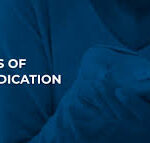The Vital Role of Pharmacists in Africa’s Drug Safety

Across Africa, irrational drug use—such as self-medication, incomplete antibiotic doses, and the misuse of painkillers—remains a major public health problem. According to the World Health Organization (WHO), more than half of all medicines are prescribed, dispensed, or sold inappropriately worldwide, with Africa being disproportionately affected.
Pharmacists, as the most accessible healthcare professionals, play a critical role in ensuring rational drug use. By guiding patients, monitoring prescriptions, and educating communities, they are at the frontline of protecting Africans from drug misuse and its deadly consequences.
What Is Rational Drug Use?
Rational drug use means that patients receive the right medicine, at the right dose, for the right duration, and at the lowest cost. This prevents drug resistance, reduces side effects, and improves treatment outcomes.
Challenges of Irrational Drug Use in Africa
-
Self-Medication Culture – Many people purchase antibiotics and painkillers without prescriptions, especially in Nigeria and Kenya, where access to pharmacies is widespread but regulation is weak.
-
Overprescription by Healthcare Providers – Some doctors prescribe unnecessary drugs, often due to patient demand, profit motives, or lack of updated clinical guidelines.
-
Counterfeit and Substandard Drugs – Fake medicines make it difficult for patients to get effective treatment, fueling resistance and treatment failure.
-
Poor Patient Adherence – Patients frequently stop taking medicines once they feel better, especially with antibiotics, increasing the risk of antimicrobial resistance (AMR).
The Role of Pharmacists in Promoting Rational Drug Use
1. Patient Counseling
Pharmacists provide one-on-one guidance to patients on how to take medicines correctly—dosage, timing, side effects, and drug interactions. This prevents misuse and improves adherence.
2. Prescription Monitoring
Pharmacists act as gatekeepers, ensuring that prescriptions from doctors are accurate, appropriate, and safe before dispensing. They can detect overprescription or dangerous drug combinations.
3. Public Health Education
Pharmacists lead community awareness campaigns about the dangers of self-medication, antibiotic resistance, and fake drugs.
4. Fighting Counterfeit Medicines
With tools like NAFDAC’s Mobile Authentication Service (MAS) in Nigeria, pharmacists help patients verify drug authenticity before use.
5. Collaborative Healthcare
Pharmacists are increasingly working alongside doctors and nurses in team-based healthcare models, ensuring medicines are used safely and effectively.
6. Pharmacovigilance
By reporting adverse drug reactions, pharmacists contribute to national and regional safety databases that protect future patients.
Case Study: Nigeria’s Community Pharmacists
In Nigeria, community pharmacists have become vital in promoting rational drug use. Through professional associations and collaborations with NAFDAC, they run antibiotic stewardship programs, patient counseling sessions, and health campaigns on drug safety.
Solutions to Strengthen Pharmacists’ Role
-
Policy Support – Governments should empower pharmacists with stronger prescribing rights for certain drugs, enabling faster, safer care.
-
Continuous Training – Ongoing education on new drug guidelines, resistance patterns, and digital health tools.
-
Technology Adoption – Use of electronic prescriptions and digital drug databases to track usage and prevent misuse.
-
Public-Private Partnerships – Partnering with NGOs and pharmaceutical companies to expand drug education campaigns.
-
Youth Engagement – Training the next generation of African pharmacists to lead in digital health and community medicine.
Conclusion
Pharmacists are more than medicine dispensers—they are healthcare educators, gatekeepers, and advocates for rational drug use. In Africa, where counterfeit drugs, antimicrobial resistance, and poor adherence threaten millions of lives, their role is more important than ever. Strengthening the pharmacist’s position within healthcare systems is not just a professional necessity—it is a public health priority for Africa’s future.
Written by Fawzi Rufai, Medically Reviewed by Sesan Kareem



